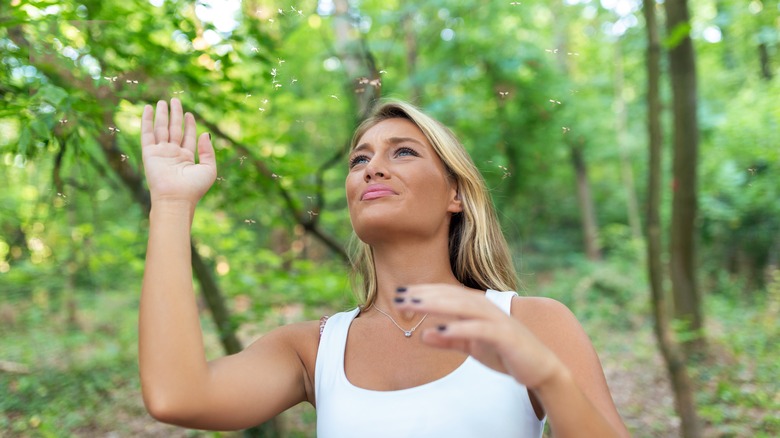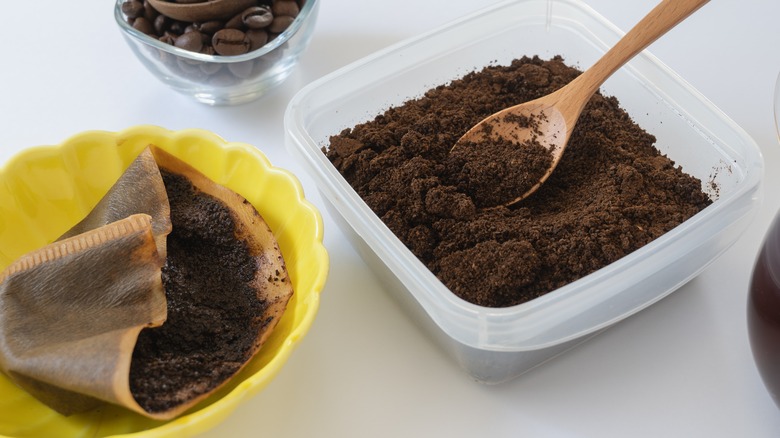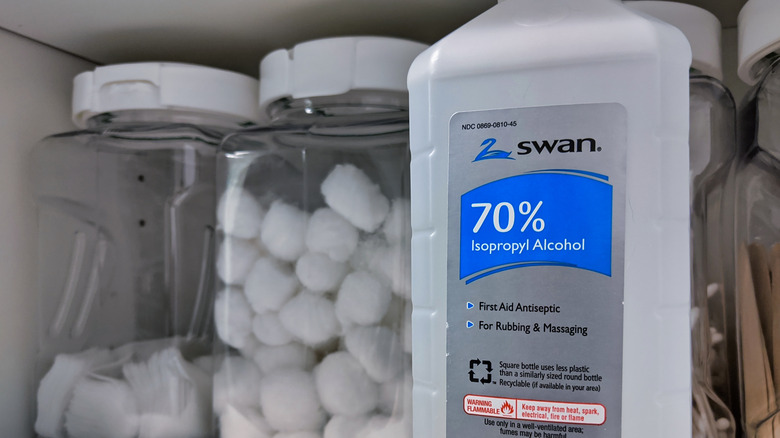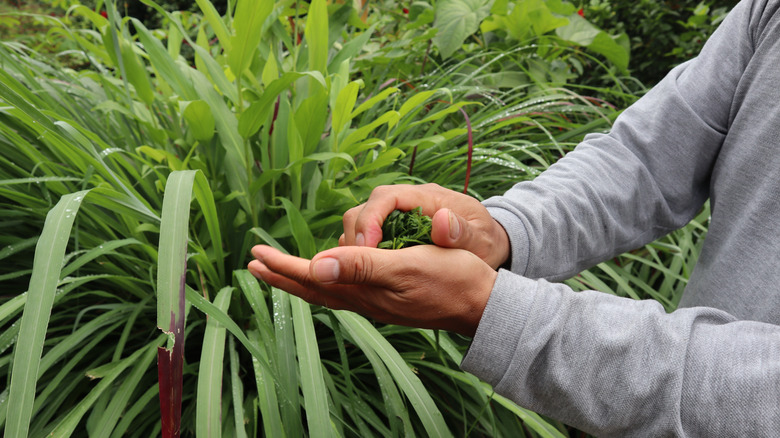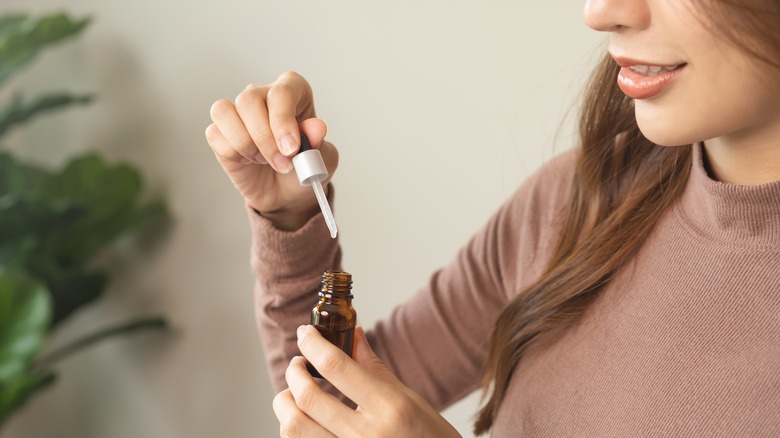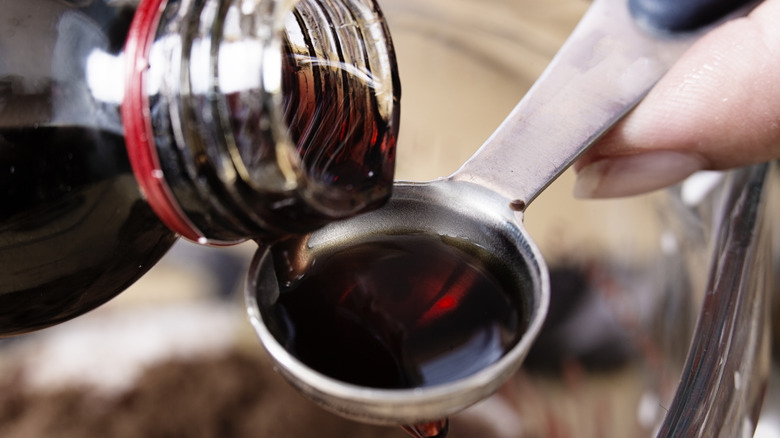Household Staples That Repel Mosquitos Like Magic
When it comes to ranking human's most frustrating enemies, mosquitoes find a prominent place on the list. Usually, eliminating these pesky insects isn't the easiest chore. Fortunately, banishing them from your space can be as simple as exploring your kitchen and garden, and the best part is you don't need to break the bank. With a few household staples like vinegar and herbs, you can create a mosquito-free haven, safeguarding your space without resorting to chemical alternatives.
Note that getting rid of mosquitos is not just a matter of comfort but a crucial step in protecting yourself from the serious health risks they pose. These bloodsucking insects can pose a significant threat by transmitting deadly diseases such as Malaria, Zika virus, and Dengue fever. Plus, you have to deal with the annoyance of the itchy red bumps they leave on your skin. So, it's necessary to learn simple yet powerful repelling solutions. These convenient options can often be found right in your home and help you wage the war against nagging mosquitos.
Coffee grounds
Used coffee grounds are often thrown into the trash. However, these leftovers are still infused with chemical components that make them useful as fertilizers, odor neutralizers, and insect repellents. As proven in a study by the National Library of Medicine, the presence of coffee grounds affects the behavior and reproduction of Aedes albopictus, a mosquito responsible for spreading Dengue fever. They are especially affected during their early life stages as coffee seems to repel females from laying eggs and inhibits the hatching of larvae.
When it comes to using your coffee grounds to repel mosquitos, there are a few options. You can simply spread the grounds in areas where you spend the most time outdoors, like your patios, seating areas, and garden. You can also place containers filled with dry grounds around the perimeter of your outdoor space. This can create a barrier that mosquitoes may be less inclined to cross. Alternatively, you can sprinkle them in a fire pit or outdoor fireplace as the smoke dispersed will create a scented fog effect.
Grapefruit is a citrusy deterrent
Grapefruit, a member of the citrus family known for its sweet and tangy taste, is another unknown gem with mosquito-repelling properties. The compound nootkatone found in grapefruit is responsible for the smell of the fruit and has also been proven to be a good insect repellent. According to the researchers at the National Library of Medicine, nootkatone's effectiveness in killing mosquitoes was compared to the commonly known insecticide permethrin. Although nootkatone was 1000 times less effective in killing mosquitos than permethrin, it proved to be a worthy alternative when compared to other repellents like DEET or picaridin.
The process of using grapefruit as an insect repellent is as simple as can be. You can rub the peels on your skin to transfer the scent and reap its effects. Or, purchase the fruit's essential oil, dilute it with another carrier oil, and apply it to exposed areas of your skin. If you prefer to not wear the smell of citrus, you can create a homemade mosquito-repelling candle. First, dry your pitted grapefruit by baking it at 170 degrees Fahrenheit. Once it's free of all forms of liquid, slice and mix the dried peels with melted wax in a fire-safe container. Then, add a wick and allow the candle to cool and set.
Rubbing alcohol can repel pests
Rubbing alcohol, or isopropyl alcohol, is mostly used as an antiseptic and cleaning tool. But, there have been claims by bloggers and some pest control experts about its ability to repel flying insects like mosquitos. However, there is limited evidence available to completely vouch for this claim. So you may want to be careful with this one and use it in conjunction with other strategies.
To give it a try, mix equal parts of rubbing alcohol and water to make a mosquito-repellent spray. Additionally, you can add several drops of essential oils like eucalyptus, tea tree, or lavender oil to enhance the repellent effect. Because of the inability of the molecules of rubbing alcohol to stick together, your mixture may not last long. To prevent being vulnerable to attack after it evaporates, you should try reapplying it every couple of hours. And, make sure you avoid sensitive areas like your face and places with broken skin because of the harsh effect.
Fans blow buggy threats away
Another common household item that can deter mosquitos is a standard fan. These are lifesavers on a hot day but are also unsung heroes in the battle against bugs. Mosquitoes are usually able to locate their victims due to the carbon dioxide and heat emitted from their bodies. Positioned strategically, fans disperse this gas, making it challenging for the tiny hunters to locate their prey. Simultaneously, they aid in evaporating moisture, reducing humidity, and making the environment less appealing to mosquitoes. Lastly, fans disrupt the flight patterns of the insects, hindering their ability to land steadily on targets.
To effectively repel the bugs using fans, consider installing outdoor ones on covered porches or patios to create a mosquito-resistant zone. Additionally, portable fans powered by rechargeable batteries can serve as temporary relief in various settings. Whether you're enjoying an evening on the deck or camping in a mosquito-prone area, a portable unit can effectively disrupt their flight patterns. This gives you a breezy bubble to relax in and makes it more difficult for them to bother you.
Vinegar, the multi-purpose deterrent
Vinegar is a tart-tasting liquid that most people use as a condiment to add flavor to things like salad dressings. Sometimes it is also used as a preservative because of its ability to lower the pH of food. However, one thing most people aren't aware of is just how versatile vinegar is as it extends to fighting off pesky mosquitos. Plus, it doesn't just work on mosquitos. It can also deter other bugs like ants, spider mites, and flies.
To use it as a repellent, simply mix equal parts vinegar and water and spray on your skin. In most cases, apple cider vinegar is the top pick when looking for a bug-repellant. According to studies, the strong scent irritates the sensory receptors of mosquitos, preventing them from going too close. Keep in mind that it's quite acidic, so you should never forget to dilute it with water to prevent any form of skin irritation, dryness, or damage.
Herbs and plants repel mosquitos naturally
Other than their beautifying effects, nature's greenery also holds the key to a mosquito-free household. Citronella, lavender, basil, and mint can all add a pop of foliage to your outdoor space. Plus, they can be an aesthetically pleasing defense against many insects including winged invaders like mosquitos.
When it comes to using these plants to keep mosquitos away, you can plant them in beds near your outdoor living spaces or in pots near windows and doors. These can be used to make container gardens that are beautiful and functional bug repellers. However, just the mere presence of these plants likely won't be enough to repel the insects. While they have strong scents, you'll need to help them along by unleasing the powerful aromas. You'll want to rub the foliage on your skin or trim the leaves to help release the fragrance and make it more potent.
Essential oils can make a concentrated impact
Essential oils are concentrated extracts mainly used in aromatherapy. Although these oils are widely touted for their proposed health benefits, they are also celebrated for their use in homemade mosquito-repelling sprays. Oils like clove essential oil, peppermint essential oil, and oil of lemon eucalyptus are all good options.
Just like vinegar, when using essential oils to ward off mosquitos, it is advisable to not apply them directly on your skin. This can cause irritation because of how strong and concentrated they are. But, there are three other ways you can use the oils to repel mosquitos. Firstly, you can use it topically by mixing it with a carrier oil like eucalyptus oil or jojoba oil and rubbing it into your skin. You can also make a DIY repellent spray by mixing your essential oil with a dilutant like witch hazel and spraying it directly on your skin or clothing. Lastly, you can use an essential oil diffuser to spread the scent throughout your home or outdoor space, creating a fragrance barrier against mosquitos.
Vanilla isn't as sweet to mosquitos
Vanilla smells good, and tastes even better, which is why it is widely used in perfumes and candles in addition to baked goodies. However, the real extent of its use doesn't end here, as vanilla is touted as an effective mosquito repellent. Shannon Harlow-Ellis, certified entomologist and pest control specialist tells House Beautiful, "Vanilla extract, like some other plant derivatives, will mask the odor mosquitoes are searching for when looking for a blood meal." However, she warns that this only applies to pure extracts as imitations can attract insects to you rather than repel them.
To use vanilla extract to repel mosquitos, dilute a 1/4 cup of it into 1/2 cup of water to create a spray. You can also add a few drops of complementary essential oils like lavender or peppermint to boost your mixture's efficacy. Like rubbing alcohol, reapplication is key since the effect can wear off after a short time, depending on the balance of your mixture.
